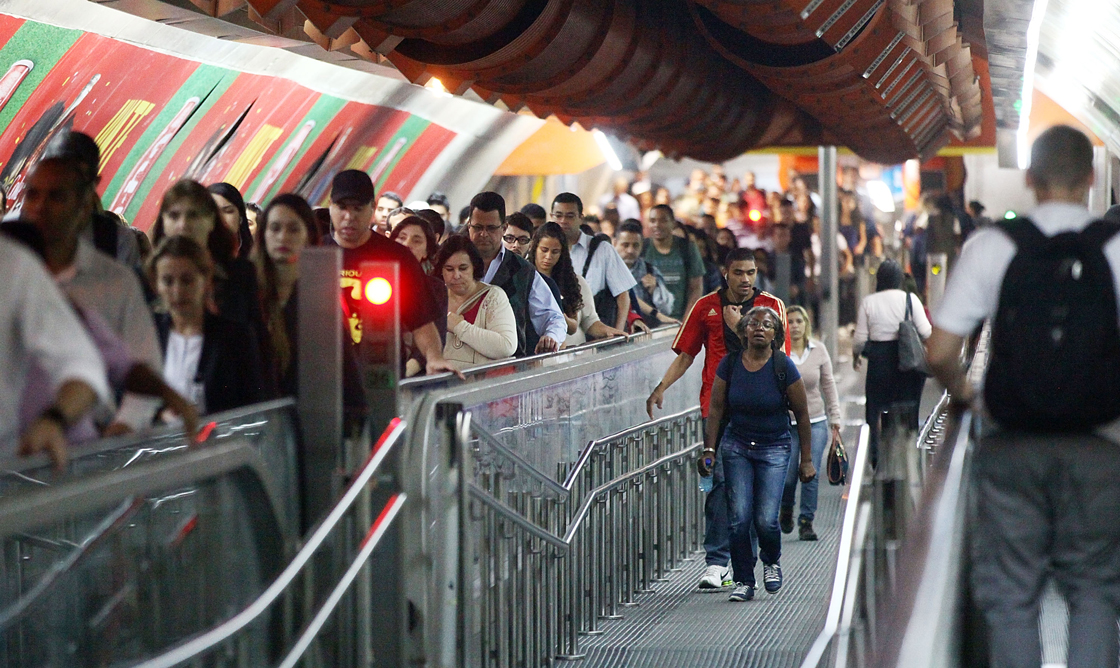SAO PAULO, Brazil – A paralyzing subway strike has been suspended, though union officials warn that if their demands for higher pay aren’t met, they will call workers off the job again Thursday — the day Sao Paulo hosts the opening match of Brazil’s World Cup.

Union members voted to temporarily suspend the strike they began last week, but also decided they would take a new vote Wednesday to determine whether to resume the work stoppage a day later.
Meanwhile, a union representing subway workers in Rio de Janeiro said members would vote Tuesday evening on whether to strike.
READ MORE: World Cup gets going, but Brazilians don’t seem very happy about it
The actions are a severe threat for World Cup fans because the subways in both cities are being counted on as the main way for spectators to get to the stadiums.
Union officials in Sao Paulo met with the state government Monday afternoon but the parties could not agree on the size of a raise for subway workers, who went on strike Thursday and threw already congested traffic into chaos in the city of 11 million.
WATCH: Brazilian police and striking subway workers clashed in a central commuter station in Sao Paulo. Union officials have agreed to suspend the stoppage but it could resume in time for the World Cup opening match this week.
Sao Paulo union members clashed with police earlier Monday when they tried to hold a rally in a central station. Officers used tear gas and muscle to push the strikers out of the station.
Altino Prazeres, president of the union leading the strike, said almost all of the 8,000 subway employees had been off the job. Marching along with workers on a central street, he said they were not interested in disrupting the World Cup.
“I love soccer! I support our national team. The point is not to stop the Cup,” he said. “We want to resolve this today and all are willing to negotiate.”
Prazeres said workers were willing to reduce their demand for a 12 per cent pay increase if the state-run subway company offered more benefits, but managers have refused. A labour court has ruled that the salary rise should be 8.7 per cent.
A spokeswoman for the subway company declined to answer questions.
SEE MORE: Complete 2014 World Cup coverage
Sao Paulo state’s transport secretary, Jurandir Fernandes, told local reporters that 60 striking workers had been fired.
A Sao Paulo labour court over the weekend fined the union $175,000 for the first four days of the strike and said it would add $220,000 for each additional day the work stoppage continued.
Other groups have supported the strike, saying workers deserve the raise and the government ought to invest more in public transportation. But some people are angry because of the longer commutes.
Adriana Silva, who works as a cashier at a jewelry store downtown, said it had taken her three hours to get to work from the eastern tip of the city.
“Why do this now? Why so close to the Cup?” she said. “Who they end up hurting more is us. This has to stop.”
The subway strike was the latest unrest to hit Brazil in the run-up to the World Cup. Teachers remain on strike in Rio and routinely block streets with rallies. Police in several cities have gone on strike, but are back at work now.
There has also been a steady drumbeat of anti-government protests across Brazil blasting spending on the World Cup and demanding improvements in woeful public services. The protests that began last year have diminished in size but not in frequency, and they have sometimes disrupted traffic.




Comments